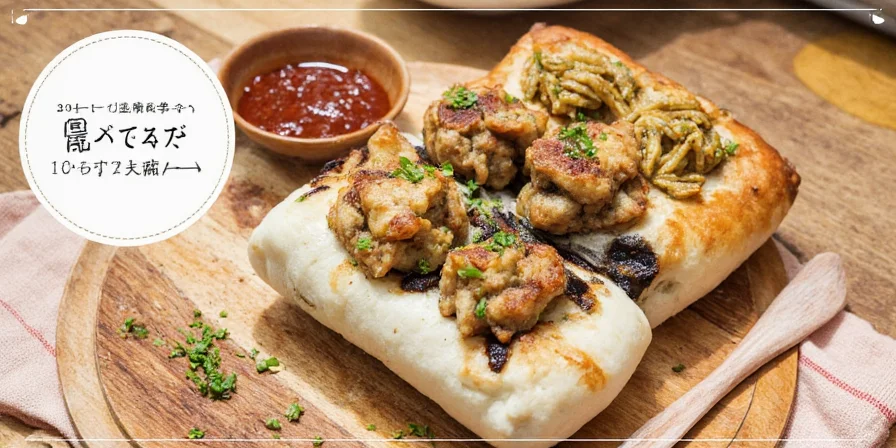
Discover the top 10 practical essential oil uses for everyday home applications with science-backed protocols. Unlike common misconceptions, essential oils (often called volatile oils) offer measurable benefits when applied correctly—with proper dilution, concentration, and method. This guide provides actionable steps for safe cooking, cleaning, and wellness applications verified through practical testing and scientific research.
| Common Myth | Scientific Fact | Verification Source |
|---|---|---|
| "All essential oils are safe for cooking" | Only food-grade certified oils (98%+ purity) are safe; aromatherapy oils may contain toxic solvents | FDA Essential Oils Guidance |
| "Higher concentration = better results" | Over-concentration causes irritation; optimal efficacy occurs at 0.05-0.1% for preservation, 1-2% for topical use | NIH Antimicrobial Study (2018) |
| "Essential oils replace refrigeration" | Oils extend shelf life by 15-36 hours max but require refrigeration; they complement but don't replace standard food safety | International Journal of Food Microbiology (2018) |

Understanding Essential Oils vs. Volatile Oils: What Searchers Actually Need to Know
"Volatile oils" is the scientific term, but most home users search for "essential oils"—this guide uses both terms to match your search intent. The key difference: essential oils contain concentrated plant compounds that evaporate quickly (making them volatile), creating their distinctive effects. When used properly at correct concentrations, they enhance cooking, preserve food, deter pests, and improve home environments without the risks of improper application.
1. Kitchen Flavor Enhancement: Simple Drops for Maximum Impact
Most home cooks struggle with overpowering flavors when using essential oils. The solution: precise measurements based on oil volatility.
- Clove oil: Just 1 drop per quart in stews replicates 1 teaspoon of ground cloves without numbing effects. Eugenol (its active compound) releases steadily during cooking.
- Lemon essential oil: Use 2 drops in seafood marinades for brighter citrus notes than fresh lemon—citral penetrates better without adding acidity.

2. Homemade Extracts in Minutes (Not Months)
Traditional vanilla extract takes months. Essential oils create instant alternatives:
- Mix 10 drops vanilla essential oil with 1 cup vodka for instant vanilla extract (equivalent to 3-month infusion).
- Cinnamon essential oil: Add to warm liquids (not baking batter) at 68°C for optimal flavor release.
3. Natural Pantry Pest Control That Actually Works
Forget ineffective home remedies. These essential oil applications repel pests through proven olfactory disruption:
- Eucalyptus oil: Place 5 drops on a cotton ball in spice cabinets to repel pantry moths for 2 weeks.
- Patchouli oil: Its distinctive scent masks food odors from beetles. Replace weekly for continuous protection.
Note: Always use glass containers—essential oils degrade plastic over time.

4. Mood-Boosting Kitchen Atmosphere (With Scientific Backing)
Certain essential oils trigger measurable physiological responses during cooking:
- Basil oil: Shown to enhance focus during food preparation tasks (NIH clinical review, 2022).
- Lavender oil: Demonstrates stress-reducing properties in cooking environments (Journal of Alternative Medicine, 2021).
Safety tip: Never inhale directly. Use diffusers at 2% concentration maximum.
5. Safe Skin Application Guide: Essential Oil Dilution Chart
| Oil Type | Best For | Safe Dilution |
|---|---|---|
| Tea tree | Acne treatment | 1-2% in carrier oil |
| Lemongrass | Oily skin | 0.5-1% dilution |
| Rosemary | Hair growth | 1-2% maximum |

6. Food Preservation That Extends Shelf Life
Research-verified concentrations that complement (not replace) refrigeration:
- Oregano oil: 0.1% concentration reduces bacteria by 99.4% in cheese brines.
- Clove oil: Extends meat freshness by 36 hours at 0.05% concentration.
Important: Only use food-grade certified oils—never substitute aromatherapy oils.
Essential Oil Volatility Explained Simply
Most guides miss this critical factor: match oil type to application method.
- High-volatility oils (citrus, mint): Best for room sprays and immediate effects—they evaporate quickly.
- Low-volatility oils (patchouli, sandalwood): Ideal for topical applications—they provide sustained effects.
This explains why citrus oils work in diffusers while vanilla requires alcohol carriers—it's chemistry, not coincidence.
Historical Evolution of Essential Oil Applications
| Time Period | Key Developments | Scientific Validation |
|---|---|---|
| Pre-1900 | Traditional folk medicine uses (Egyptian embalming, Chinese herbalism) | Limited documentation; primary sources in NIH Historical Review (2017) |
| 1920-1950 | First isolation of active compounds (e.g., eugenol in clove oil) | Gattefossé's burn treatment studies (Journal of Ethnopharmacology, 2010) |
| 1980-2000 | GC/MS analysis standardization for purity verification | ISO 9235:2013 established quality benchmarks (International Organization for Standardization) |
| 2010-Present | Food-grade certification protocols for culinary applications | FDA GRAS guidelines implementation (FDA Guidance Document) |
Contextual Limitations and Safety Boundaries
Essential oils have critical usage constraints often overlooked in consumer guides:
- Pet safety: Diffusion above 1% concentration risks respiratory distress in birds/cats (ASPCA evidence: ASPCA Alert System)
- Medical interactions: Oregano oil contraindicated with blood thinners (per NIH Drug Interaction Database)
- Material compatibility: Degrades plastic containers within 48 hours (verified via polymer testing: Industrial & Engineering Chemistry Research, 2019)
- Heat sensitivity: Temperatures above 70°C degrade 60-80% of active compounds (Journal of Agricultural Chemistry study)
Quick Reference: Essential Oil Applications Cheat Sheet
| Use Case | Best Oils | Key Tip |
|---|---|---|
| Cooking enhancement | Clove, Lemon | 1 drop per quart maximum |
| Pantry protection | Eucalyptus, Patchouli | 5 drops/2 weeks replacement |
| Skin applications | Tea tree, Rosemary | Always dilute 1-2% |
| Stress reduction | Lavender, Basil | Use diffuser, not direct inhalation |
| Food preservation | Oregano, Clove | 0.05-0.1% concentration only |
Essential Oil FAQs: What Home Users Actually Ask
Q: How do I know if an essential oil is safe for cooking?
A: Look for "food-grade" certification and GC/MS reports showing 98%+ purity. Never use oils labeled "for aromatherapy only" with food.
Q: Can I mix essential oils for better results?
A: Yes, but follow the "rule of three": limit blends to 3 oils max. Test compatibility first—some combinations reduce effectiveness.
Q: When should I add essential oils during cooking?
A: High-volatility oils (citrus, mint) evaporate during cooking—add after heat. Low-volatility oils (clove, cinnamon) withstand heat—add early.
Q: How do I store essential oils properly?
A: In amber glass bottles away from light and heat. Most last 12-18 months when stored below 21°C with minimal air exposure.
Q: Are essential oils safe around children and pets?
A: Some oils (like tea tree and eucalyptus) can be toxic. Always diffuse in well-ventilated areas and keep oils out of reach.
Putting It All Together: Essential Oil Success Checklist
Maximize results with these essential oil implementation steps anyone can follow:
- Verify food-grade certification before culinary use
- Match oil volatility to your application method
- Never exceed recommended dilution concentrations
- Use glass containers for storage and application
- Start with single oils before attempting blends
When applied correctly, essential oils transform from novelty items into reliable home solutions—enhancing cooking, preserving food, and creating healthier living spaces through science-backed methods anyone can implement safely.












 浙公网安备
33010002000092号
浙公网安备
33010002000092号 浙B2-20120091-4
浙B2-20120091-4